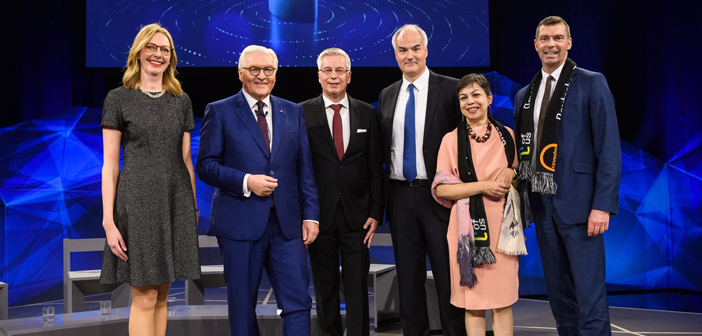Car interiors could soon benefit from new research into more environmentally sustainable plastic. A new method for the use of carbon dioxide as a raw material has been ranked among the year’s best innovations in Germany, with a team from materials manufacturer Covestro and the technical university RWTH Aachen (pictured) making it to the final round of the renowned German President’s Award for Innovation in Science and Technology. The new technologies make CO2 usable in plastics production and thereby reduce the dependency on fossil-fuel resources like petroleum.
“We are very happy that we made it to the final round,” said Covestro CEO Dr Markus Steilemann. “The idea behind CO2 innovation fits in perfectly with the times. Fossil-based sources such as crude oil can no longer be the industry’s central resource if the world is heading toward a future that is low in greenhouse gases.
“The award has encouraged us to continue working intensively on developing innovative solutions for greater sustainability in many areas,” Steilemann continued. “Together with partners from the business and scientific community, we will continue to forge ahead with the development of alternative resources such as CO2 . As a chemicals and research location, Germany can make a name for itself in this field.”
After decades of work in the field, the use of CO2 was conceived in a research breakthrough by experts from Covestro and the CAT Catalytic Center, a research institute jointly operated by the company and RWTH Aachen. The difficulty that CO2 has in forming chemical bonds was the particular challenge to be overcome. The solution was a custom-made catalyst that controls the chemical reaction so that it is environmentally friendly, economical and efficient, according to Covestro.
The benefits of the breakthrough are threefold. First, the use of CO2 partially replaces conventional oil as the sole source of carbon. At the same time, it also makes it possible to produce plastics whose components can be recycled more easily. In addition, the circular economy will benefit from the reuse of CO2 .
It’s expected that with the new technology platform, CO2 can be used to develop a wide range of high-quality plastics. Chemical precursors with CO2 (polyols) are already on the market for producing soft foams (polyurethane) for mattresses and soft furniture. A new material dubbed cardyon is also being used for sports flooring. Further areas of application include automotive interiors, elastic textile fibers and insulation.



